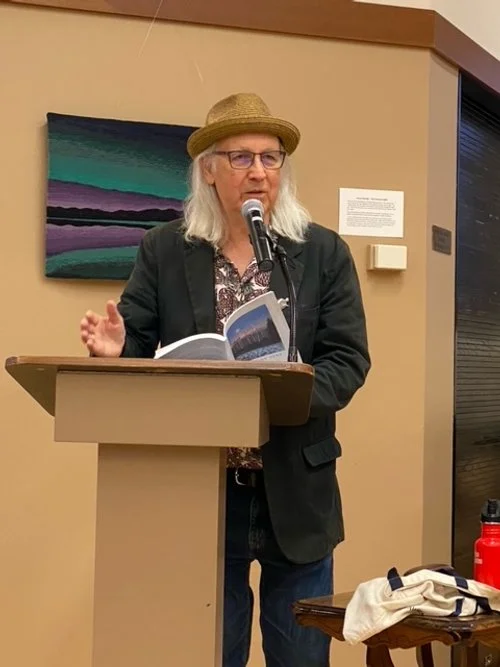—For Sue Reed Crouse
i.
Remember below that bridge jammed with storm-
wrack, how delighted you were with our find?
Dodder, you exclaimed, that’s dodder! What
could be odder than dodder, which loses
its roots when attached to a host plant,
casts a loose orange net over its capture?
Today by the river I saw brush so
thickly wound with dodder it looked like
forkfuls of some devilish spaghetti,
a comparison putting me squarely
in the tradition of those folk botanists
who bestowed on dodder names of such wild
panache I can only hope that reading them
will make you smile at their found poetry.
ii.
strange tare
scaldweed
beggarweed
lady’s laces
fireweed
wizard’s net
devil’s guts
devil’s hair
goldthread
hailweed
hairweed
hellbine
love vine
strangleweed
angel hair
witch's hair
iii.
So we’ve historically found dodder
unlovable: free-riding, parasitic,
chlorophyll-poor, utterly vampiric
on the sugars and starches it taps with its
piercing haustoria. Unlovable, yet
I believe you in some way truly love
dodder, even dodder, one of those unlovables
we’ve often agreed deserve poems too.
We can acknowledge destructiveness while
being caught in our own net of beauty
the language we both love throws over things —
that love of language more than anything
perhaps the secret of our poets’ hearts’
impractical devotion to this world.
Thomas R. Smith lives in River Falls, Wisconsin, on the banks of the Kinnickinnic River. His most recent books are Medicine Year (poetry) and Poetry on the Side of Nature: Writing the Nature Poem as an Act of Survival (prose). He posts poems and essays at www.thomasrsmithpoet.com.

